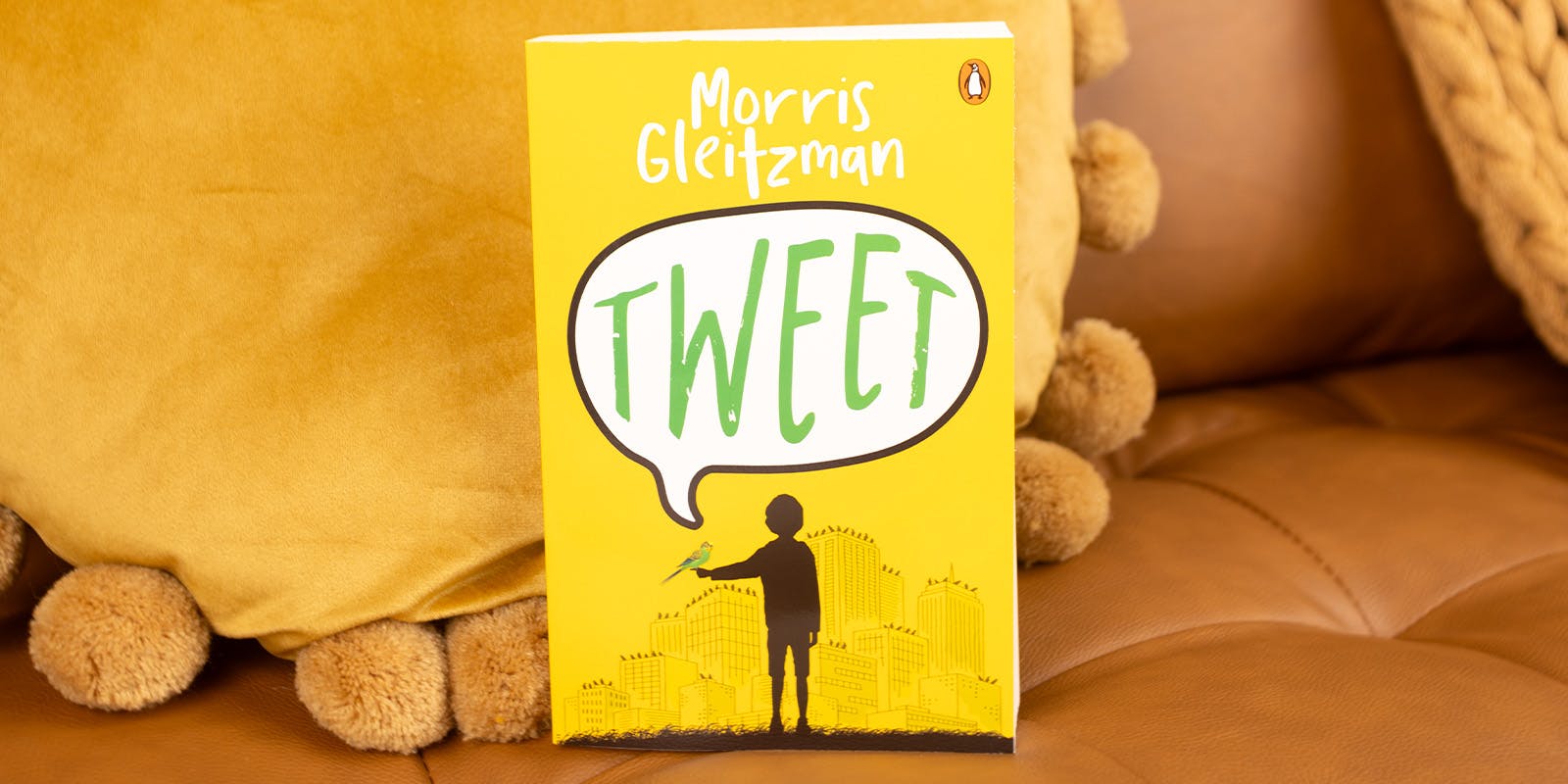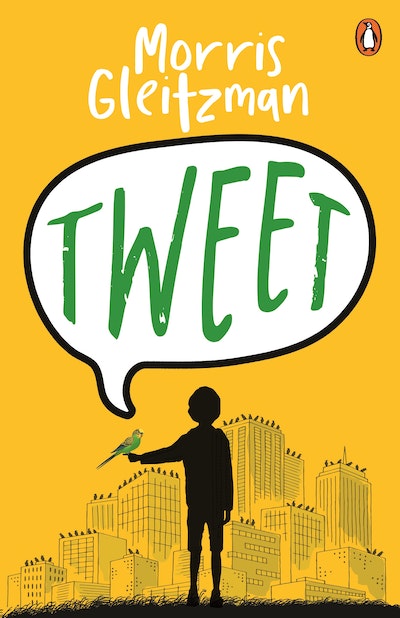Morris Gleitzman shares his top tips for writers ahead of his new book, Tweet.
There’s no denying that Morris Gleitzman is an incredible author. With 44 books published and several honours to his name, including the children's laureateship, he has become a household name across Australia and beyond.
This year, fans of Morris’s writing are in luck. In April 2024 the author’s new book, Tweet, will come out. With relatable characters, a pacy plotline and brilliant writing, it’s sure to become a new favourite for fans of the author and newcomers alike.
Compared to many of his previous books, Tweet is slightly longer, giving readers more time to immerse themselves in Morris’s writing. As you might guess, though, writing a longer book comes with more challenges – from the extensive research process to switching between two characters’ perspectives.
Despite the challenges, Morris still loves writing and hopes his books will inspire young Australian writers to pick up their pens. While catching up with him about the new book, we asked the author for his best writing tips, and his answers will help with even the toughest writer’s block.
Whether you’re new to writing or working on your 45th book like Morris, read on for tips that will take your skills to the next level.
Morris Gleitzman’s 8 tips for aspiring authors
1. Read
This advice is often repeated – and for good reason! Not only can reading help you better understand the subject you’re writing about, it can also inspire you to try new writing techniques.
While writing Tweet, Morris Gleitzman spent 18 months reading books about the natural world. They taught him a lot about birds, which was important for the plot of Tweet, and also reminded him how new discoveries can inspire a story.
2. When something grabs your attention, pause and ask why
If you come across something that particularly grabs your attention while reading, Morris suggests you stop and ask why. ‘That's when I pause,' he says, 'and think more technically about things like: look how the author wove the moral journey of the character into all the other parts of the book.’
Figuring out how authors achieve certain things in their writing can help you improve yours. Often it's easier to spot these techniques in the writing of others than in your own. Morris says he almost never looks at his own writing in such a technical way.
3. You don’t need to know EVERYTHING about your characters
Some creative writing advice suggests that writers should create an entire profile for their characters. But Morris says this isn’t necessary. ‘When you’re writing fiction,' he explains, 'you don't need every detail of the inner world or the outer world of the character. Hopefully, you’re focussing on the parts that are most important in terms of the challenges and tasks facing them, and the problems they need to confront – and maybe even start to solve.’
While you'll probably want to have a general idea about the characters’ past or other aspects of their life, Morris says that focusing on the aspects of the character that are important to the story will this keep your writing more streamlined, and also prevent you from feeling overwhelmed.
4. Remember the context
Another great way to avoid overwhelm is to remember the context. Just because you want to write about a subject, that doesn’t mean that you need to be an expert on it. While writing Tweet, Morris didn’t worry about knowing everything about bird science but rather focused on what his main characters would know about it, and what was important for the story.
‘In Tweet, Jay’s parents are world-renowned bird experts. He has grown up with birds around him, but he's still not a bird expert himself. So my lack of expertness wasn’t a huge issue, as long as I knew what Jay would need to know. This is a useful approach for anybody who wants to write about something that they're never going to know everything about: write it from the point of view of characters who don't know everything either.’
But there is one further thing: ‘Make sure you, the author, know enough that the characters can discover a few things that they didn't know.’
5. Trust your intuition
As you continue to read a lot, you’ll get an instinctive feel for what works and what doesn’t when it comes to writing. Learning to trust your intuition regarding plot or dialogue can make you a better writer.
‘What we call intuition is the distillation of a whole lot of knowledge and wisdom and ideas and possibilities that we've absorbed from all the places in life,’ says Morris. ‘When a story comes to me and I catch myself thinking oh I need this type of moral experience, I remember to try and find a balance between being prescriptive like that and being more intuitive and trusting the character.’
‘When I build a story, I’m in a shared place with the main characters, and I’m seeing, thinking and feeling from their point of view.’
6. Write for your readership
Let other people read your writing, and when they do, pay attention to anything that seems a bit flat to them .
When you go back to revise or write something else, think about ways of connecting your readers to the story. For Morris, this means no unnecessary details, always knowing what the characters are feeling, and getting to the most interesting part of the story as quickly as possible. ‘I know that I’m writing for busy people and they don't want a 19th-century start to a story with fourteen pages about the weather and how the cows are doing this year before we get into the story.’
7. Get to the point
Along the same lines, Morris always tries to get to the point. Readers want books to be entertaining, and the best way to do that is to introduce the guts of the story as soon as possible.
‘When readers start my books, I want them to know what the biggest problem in the character’s life is by the end of the first page – sometimes even in the first sentence. And I want them to share as early as possible how the character feels about that problem, and how they feel about their attempts to solve or survive the problem.’
For someone who has written as many books as Morris, this comes naturally to the author, but new writers might want to consciously put this into practice.
8. CARE!
It might sound basic, but one of the biggest secrets of being a successful writer is to really care: care about your readers, care about your characters, care about how best to connect them.
In fact ‘really caring’ is Morris’s number-one tip for any aspiring author. ‘I feel very lucky that I often meet characters I care about.’
Caring about the characters and the story you’re telling makes it a lot easier to write. Even Morris says he’d find it incredibly difficult to write a story that he didn’t personally care about, so this approach is essential for him.
Want to learn more about Tweet? Check out our teachers' notes here.













